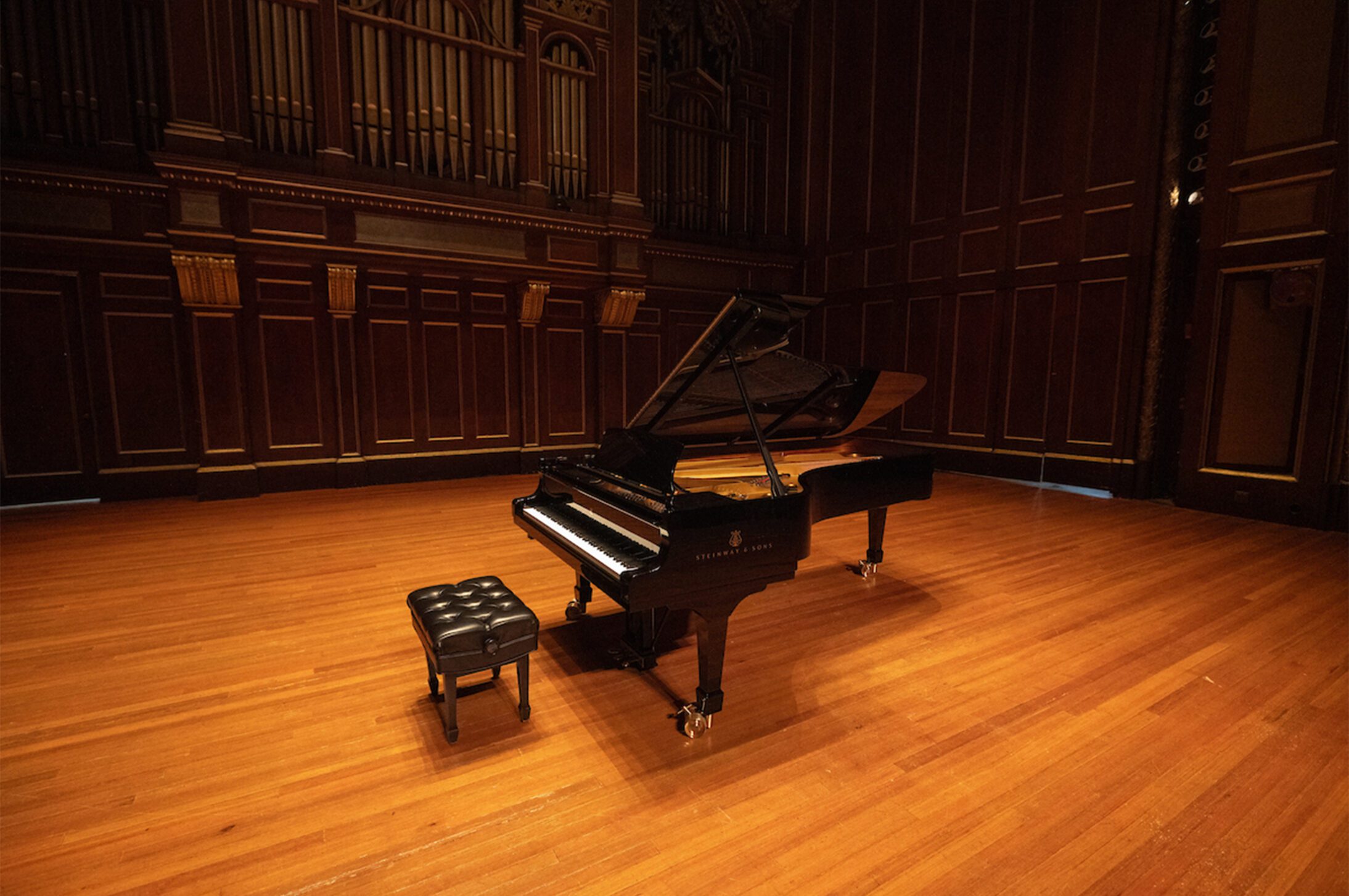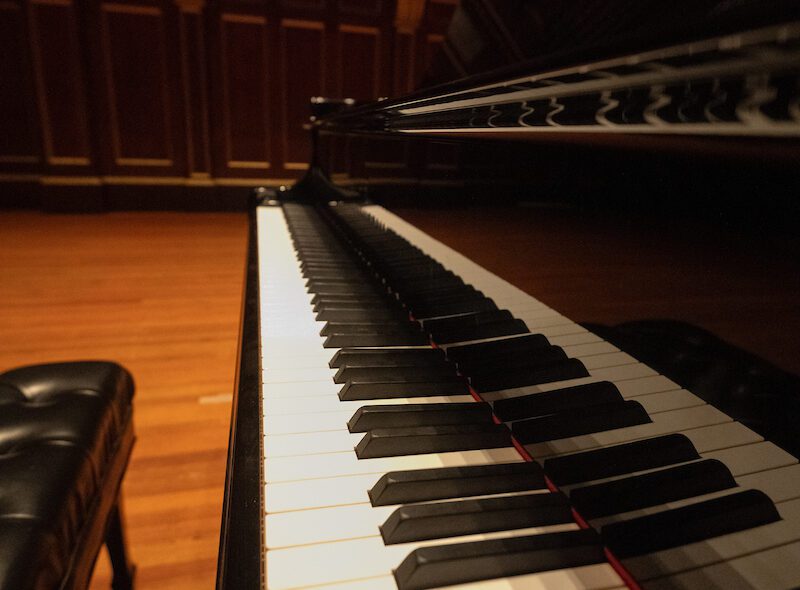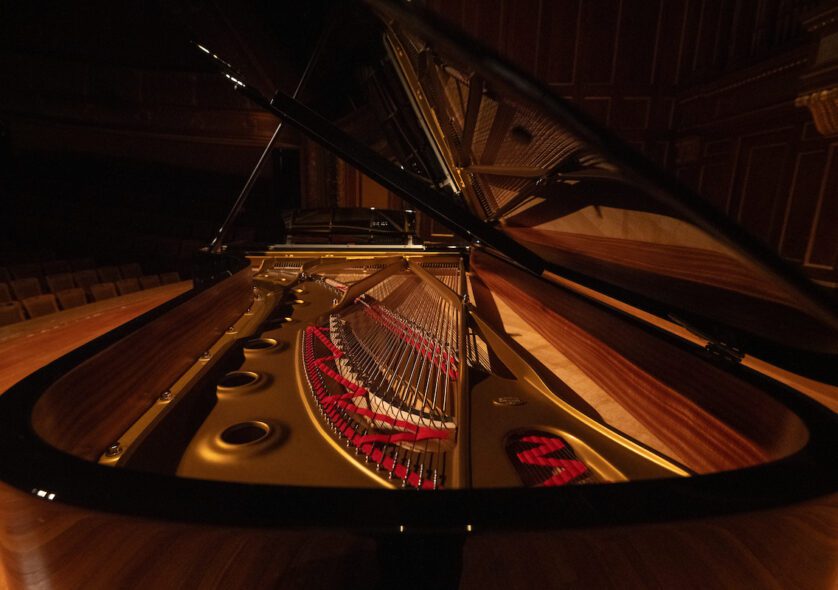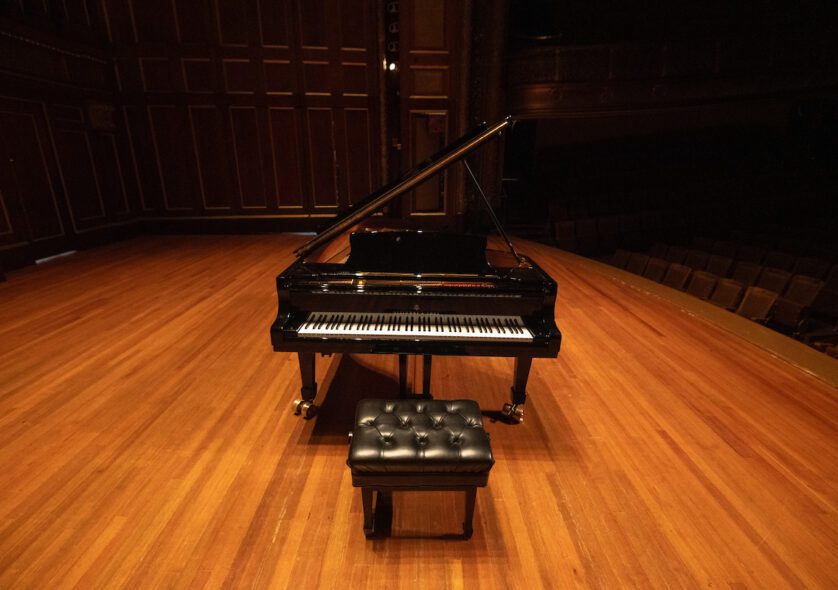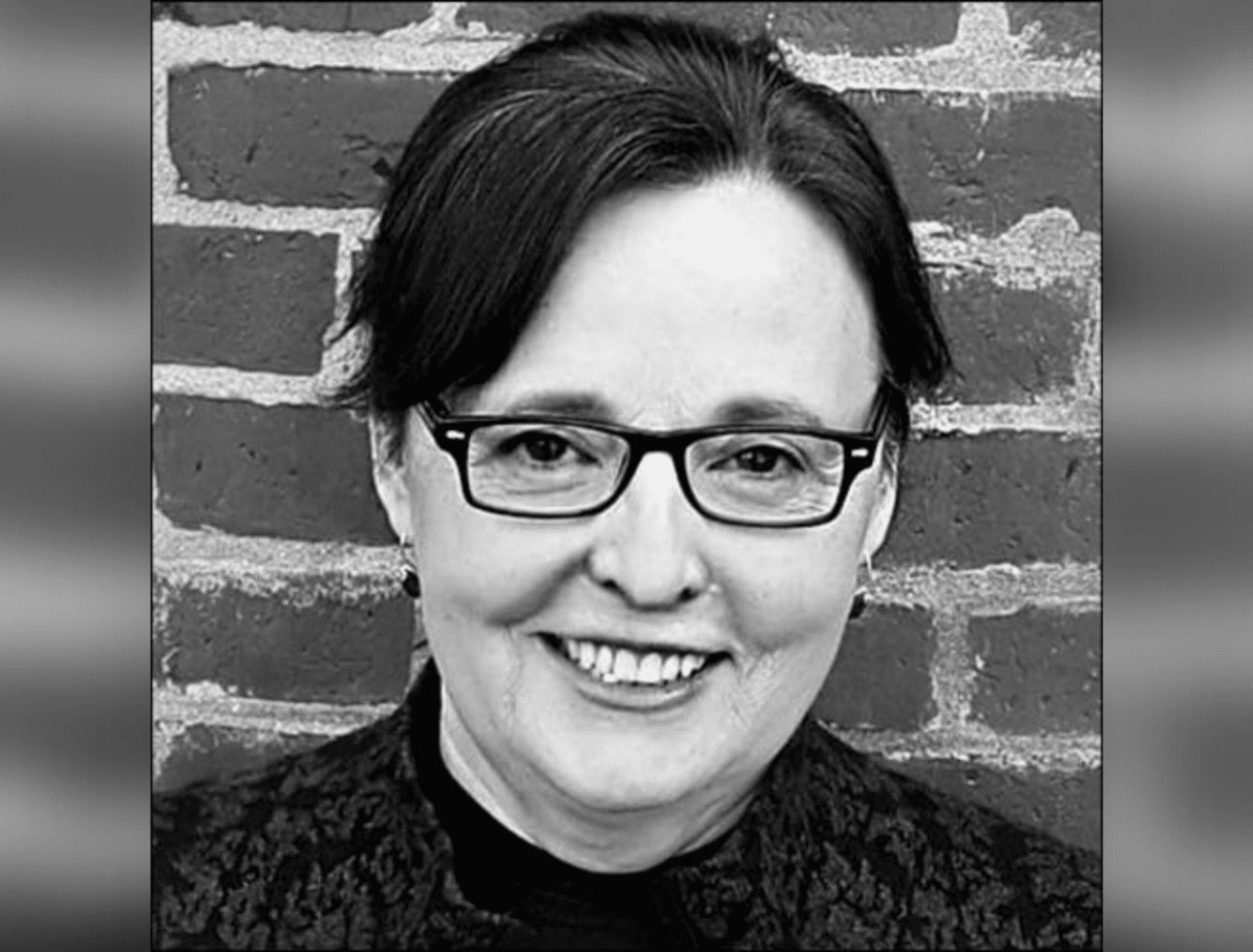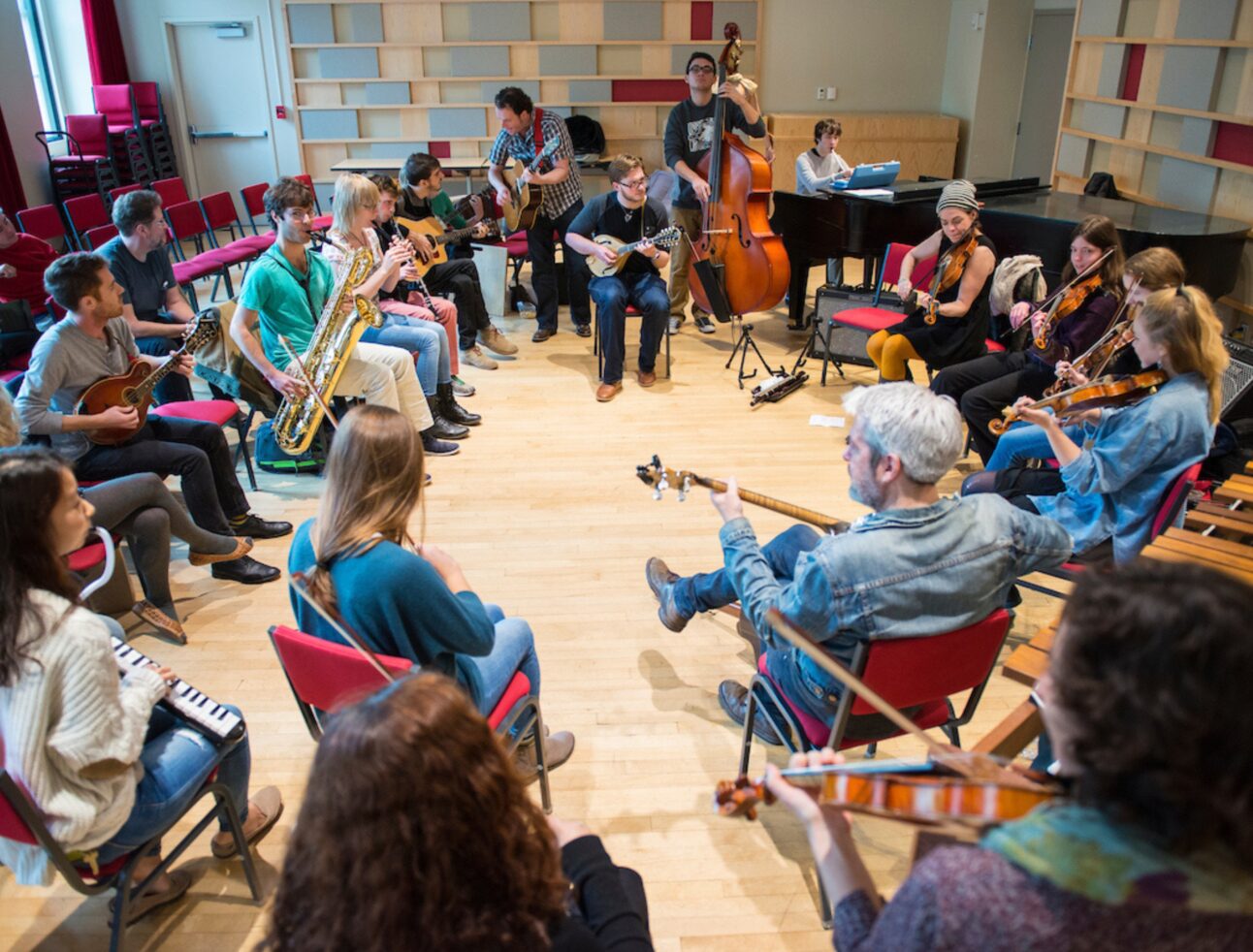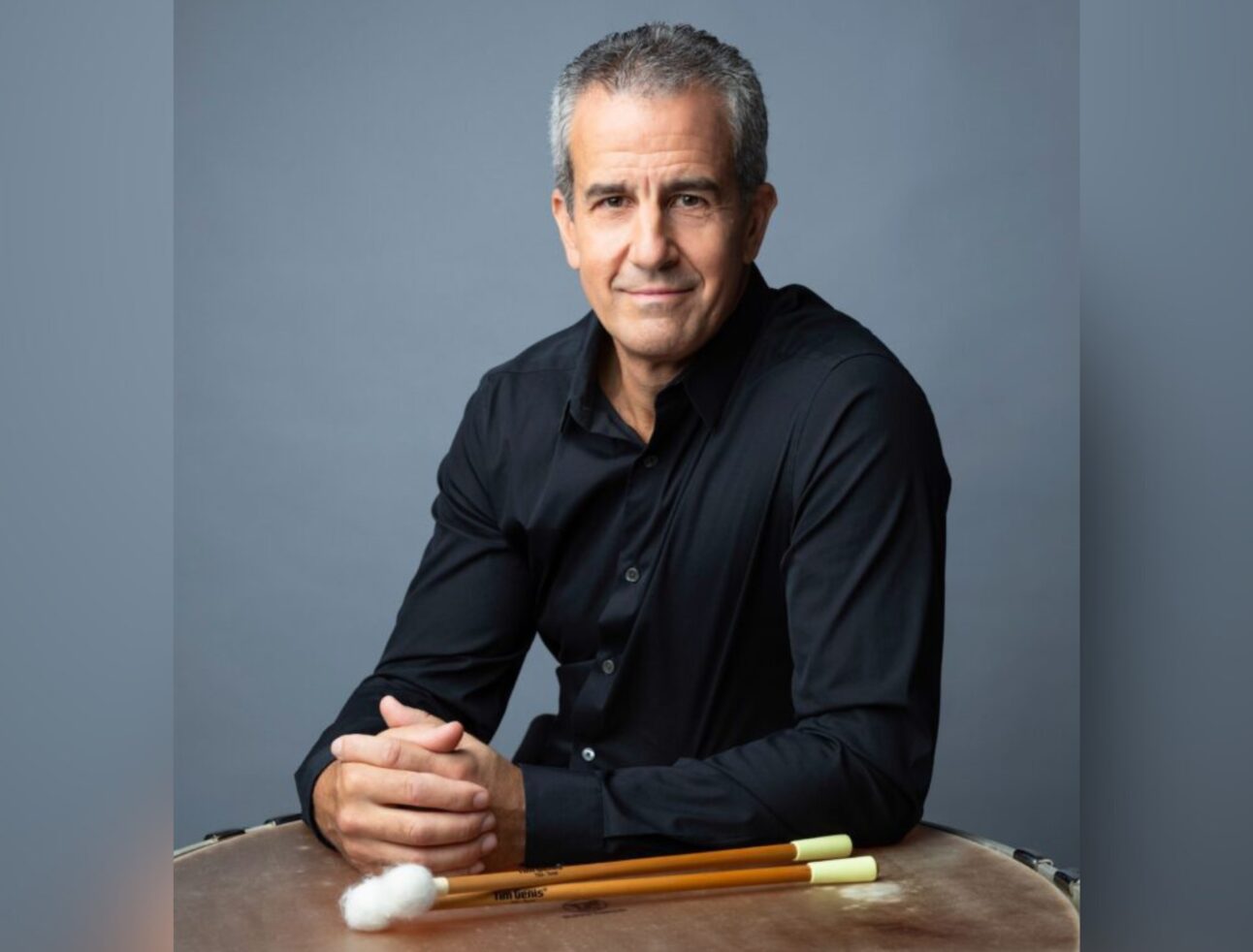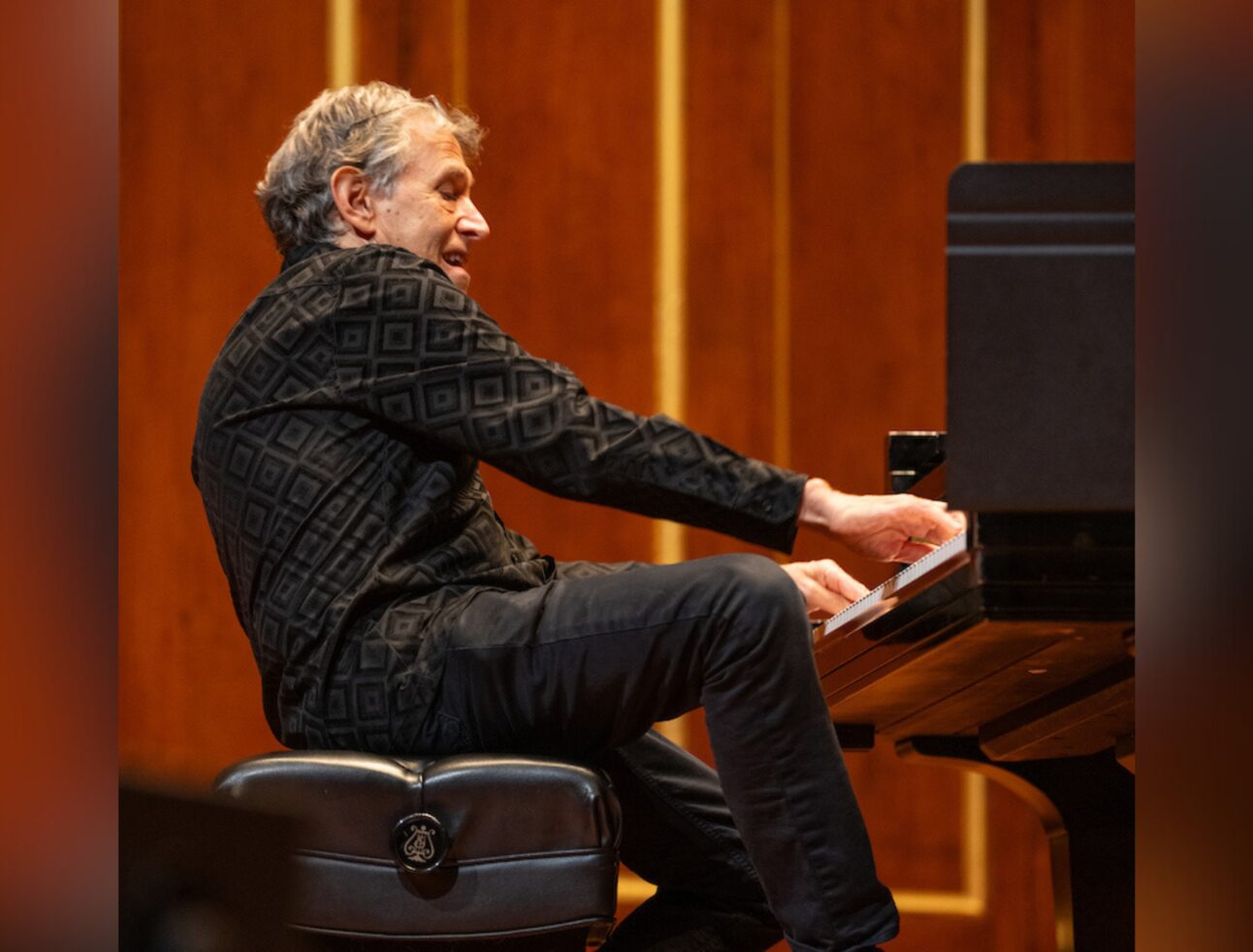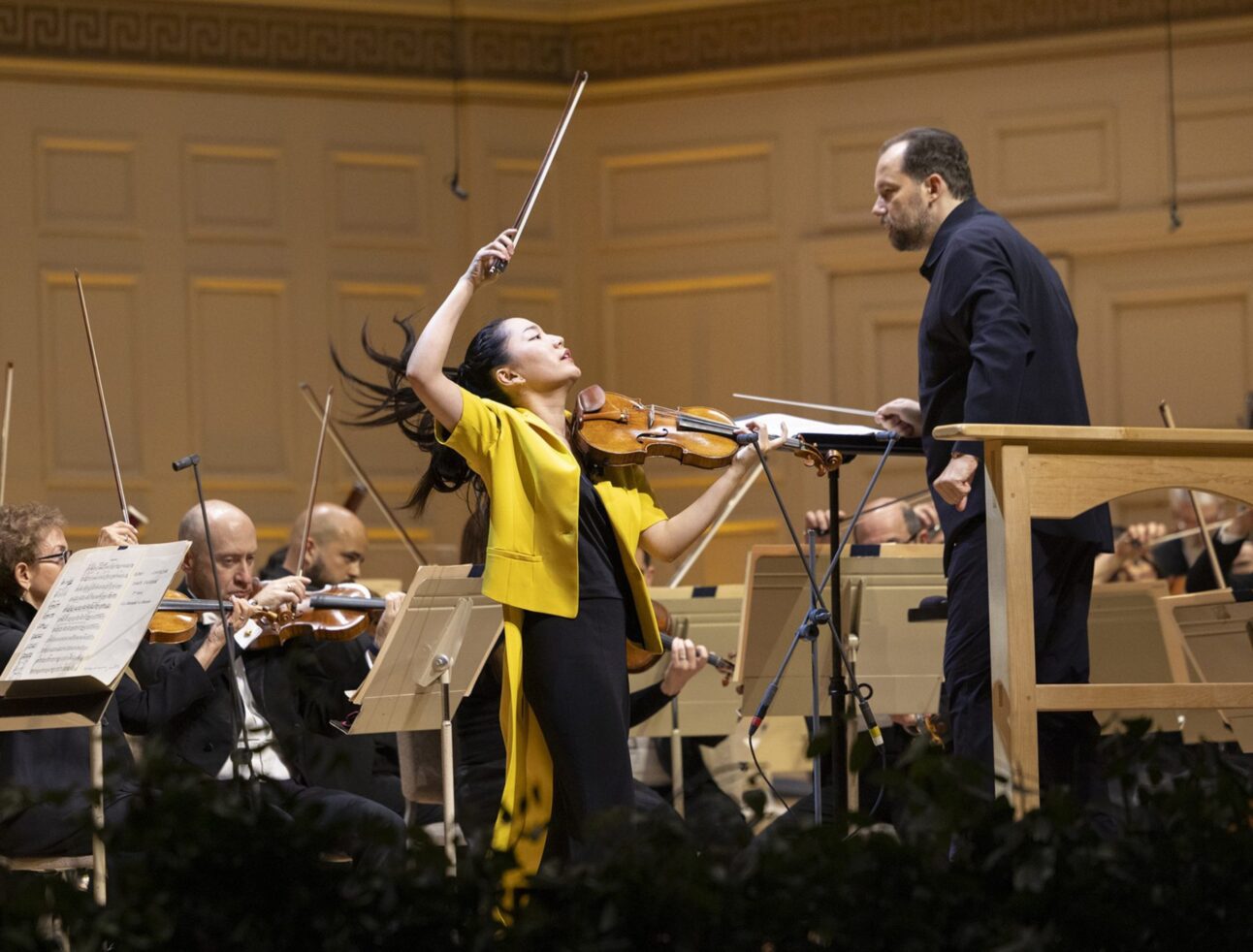In reviewing a January 11 performance presented by an outside organization in NEC’s Jordan Hall, the Boston Music Intelligencer’s Lee Eiseman began with a few words about the new Steinway & Sons piano that had arrived a week earlier.
“It became apparent by the second half that the selection committee of Bruce Brubaker, Alexander Korsantia, Cameron Stowe, and Alessio Bax had chosen a winner,” Eiseman wrote, referring to the NEC faculty pianists who’d chose the piano from among five concert-grand Model D instruments they played at the Steinway factory this past fall. “The instrument has power without harshness, a particularly redolent tenor and the ability … to play ravishing pianissimos as well as to sound like a plucked harp.”
“It is an excellent piano,” Brubaker said, adding that the instrument has character and, among the five he and his faculty colleagues played, “the most sustained sound.” The piano was also the most functional, the most versatile, in terms of its ability to serve different musicians playing different repertoire.
NEC acquired the piano through M. Steinert & Sons, the Boston-based Steinway dealer with which the Conservatory has had a relationship since its founding.
“They chose the piano that had the most character for Jordan Hall,” M. Steinert and Sons President Brendan Murphy said. Steinways, Murphy said, vary in sound from one to the next, the result of handcraft and technology. It was important that several members of NEC’s faculty visited the Steinway factory to play different instruments. “They all have a different kind of style,” Murphy said, “they use the piano in different ways.” They also know the acoustics in Jordan Hall, where the new Steinway will continuously be tuned for the space and the performances for which it’ll be used.
“I think it sounds quite good in the hall,” Brubaker said.
“We look forward to hearing it evolve,” Eiseman wrote in his review.
